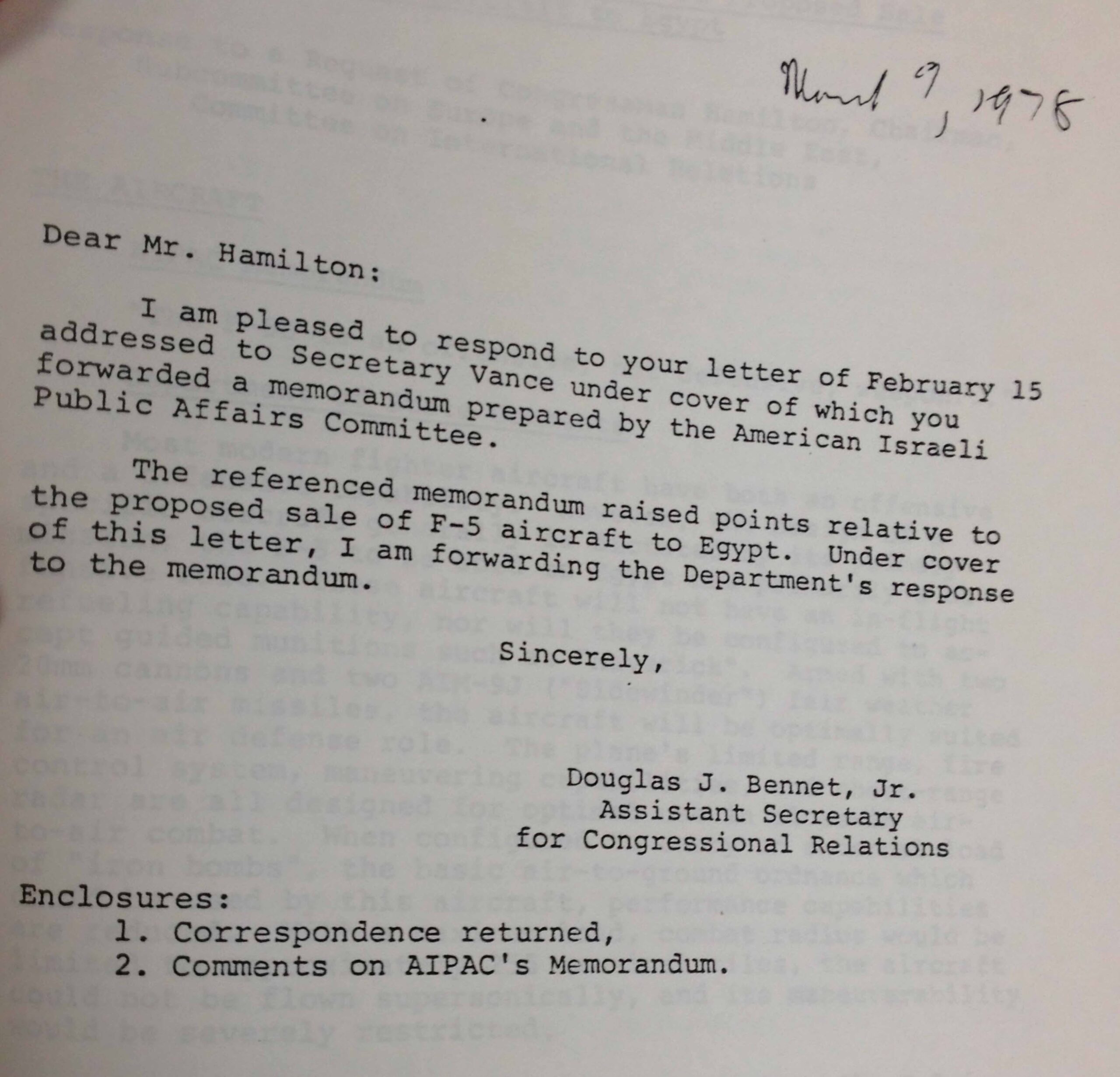
On February 14, 1978, President Jimmy Carter publicly announced a plan to sell advanced fighter jets to Israel, Egypt, and Saudi Arabia. The proposal drew swift and harsh condemnation from the American Jewish community, which particularly opposed the Saudi portion of the sale. Since coming to office, supporters of Israel in the US grew increasingly distrustful of Carter. His anger with Israeli Prime Minister Begin over settlements was public knowledge. From the memoirs of Carter’s NSC head, Zbigniew Brzezinski, we learn that the administration crafted the proposal as a “strategy to paralyze the powerful Israeli lobby on the Hill.” For Egypt, the administration wanted to reward Sadat for continuing to move toward the US and away from Moscow. For the Saudis, the advanced fighters were meant to solidify a positive relationship and provide the monarchy with advanced weaponry, ostensibly needed for fending off enemies. After months of considerable public rancor, the Senate in May 1978 ratified the plane deal, and the pro-Israeli lobby lost an important fight. It learned that when a President remained absolutely committed to a viewpoint or policy, lobbying efforts would not succeed. The lesson was learned again in 1981 when the Reagan administration pushed through the sale of AWACs aircraft to Saudi Arabia. And it was reaffirmed in 2015, when Obama pushed through the adoption of the Iran deal, without it having to travel through Congress.
